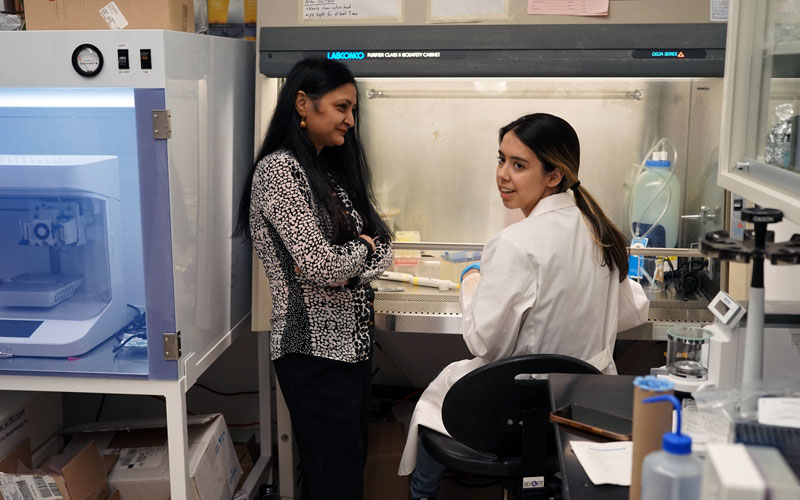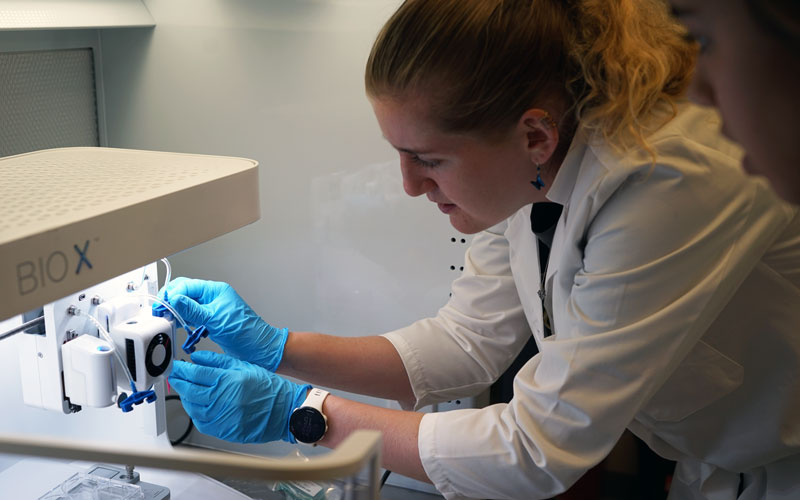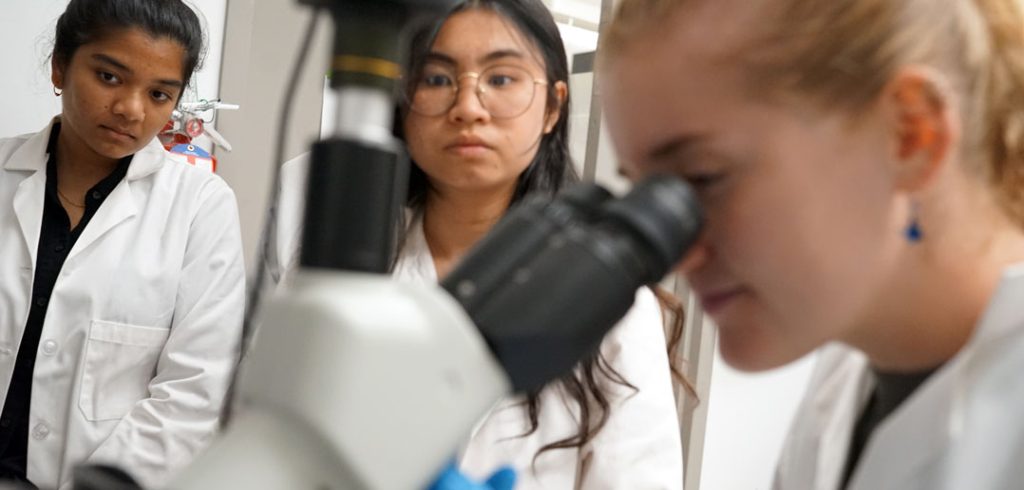“Our body essentially is like a laboratory—you have chemical reactions going on 24/7,” said Ipsita Banerjee, Ph.D., chair of the chemistry department and professor of chemistry. “Biochemistry is essentially a study of what reactions are going on in your body; how do we actually stay alive?”
Banerjee said that after she became chair of the chemistry department in 2018, she and a team of faculty members from the biology and chemistry departments worked to develop the minor in biochemistry, which was launched in 2020.
After the COVID-19 pandemic, she worked on developing the major with a team of chemistry faculty members, who developed new courses for the Biochemistry major. The major was approved by the New York State Department of Education this summer.
The major will be open to all students starting this fall. For now, incoming first-year students who are interested in the major will come in as undeclared, though they can still begin to take classes toward it. Beginning next fall, first-year students will be able to enter as biochemistry majors.

Preparation for Biotech, Medical Industries
Banerjee said that biochemistry studies will help prepare students for the expanding biotech industry, which has seen massive growth post-COVID.
“There are so many diseases today that we still don’t have a cure for—Parkinson’s, Alzheimer’s, cancer, to name a few,” she said. “While there has been progress made, much more needs to be done to understand how these diseases work, you really have to understand how things work at the molecular level—that’s what biochemistry does.”
Banerjee said that the degree will also help prepare students for graduate and medical school as well as careers in areas such as biochemistry, forensic science, pharmacology, biomedical engineering, biomedical sciences, and other health-related fields.
She noted that there’s been a real interest from students in this type of major.
“Many of the STEM students are interested in a career in medicine, allied health fields, or health professions, so biochemistry essentially ties into that,” Banerjee said.
Hands-On Learning in Biochemistry
The major has an interdisciplinary focus, according to Banerjee, as it integrates lessons from both biology and chemistry and adds new courses to broaden students’ exposure to the subject. This allows students to “approach it in a way that is interesting to [them].”
There are two tracks within the major—an American Chemical Society (ACS) certified track and a general track. Students who are interested in chemistry and advanced structural and molecular aspects of biochemistry may choose the ACS track, while students who are inclined more toward cell, molecular, and structural aspects of biochemistry and physiological approaches may pursue the general track.
Students will start by taking introductory STEM courses in biology, chemistry, physics, and calculus to lay the foundation for their work, she said.
“The upper-level courses are where they can really start immersing themselves,” she said. Those include Molecular Biology, Physical and Computational Models of Biochemical Systems, Biochemistry I and II, Methods of Biochemical Research, and more.

Research Opportunities
Biochemistry majors can also work to join research laboratories, such as Banerjee’s and those of other faculty members who are doing chemical biology, biophysical, and cell and molecular biology-related research.
This gives students opportunities to gain hands-on experience and potentially publish their work in peer-reviewed scientific journals, Banerjee said, as students will be engaged in challenging research projects and feel an ownership toward their projects.
“My biggest passion at Fordham is working with students in the research lab, and preparing them to become next-generation scientists,” Banerjee said. “Research is a big part of our department as a whole, so students will have ample opportunities to do research with the mentor of their choice.”
STEM Partnerships in NYC
Banerjee said that she believes this major will help elevate the University’s connections to growing STEM industries.
“I think one of the things we’re really trying to do, given the location of Fordham being in New York, is expand into the biotech industry, have partnerships with the larger community within New York as well as the suburbs, Westchester, all those areas,” she said. “I think by having this biochemistry major it will also provide, in addition to working with faculty mentors here, internship opportunities for students.”


